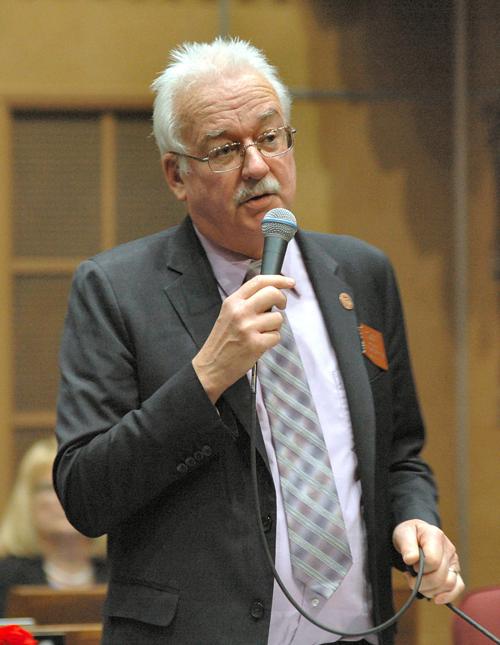PHOENIX — Saying magistrates can be squeezed politically, a House panel voted Wednesday to all but strip city councils of their ability to fire them.
The legislation would leave in place the practice of council members hiring people to preside over city courts. These courts normally handle minor criminal and traffic violations.
But it would prohibit removal “without cause.” Instead, these judges would have to stand for re-election every four years on a retain-or-reject system similar to what is used for the Supreme Court, Court of Appeals and superior court judges in the largest counties.
Rep. John Kavanagh, R-Fountain Hills, said that is preferable to judges having to worry they won’t get a new appointment if they tick off a majority of the city council. “There can be all sorts of petty reasons that three people can put together and then just say, ‘We don’t want this person any more,’” he said.
“It happens,” Kavanagh told members of the House Judiciary Committee. “Not that much, but it happens.”
But Kavanagh cited no examples of city judges not being rehired because of political or other reasons.
HB 2043 drew opposition from lobbyists for cities and towns around the state, including Tucson, Gilbert, Maricopa, Chandler and Peoria who questioned the need for such a change. Even Rep. Walter Blackman, R-Snowflake, who voted for the measure, said he’s not sure the city court system is in need of the fix that Kavanagh is proposing.
And Doug Cole who lobbies for Paradise Valley, said the legislation would create special problems in towns like his, where none of the magistrates are paid.
“We have to go out and recruit these volunteers,” he said. “And then to say, ‘Now you’ve got to put yourself up for election and run a retention election,’ we feel that’s going to be more of an impediment to get these people to spend their valuable time volunteering on a municipal court.”
Rep. Bret Roberts, R-Maricopa, questioned why anyone would volunteer. But Cole said the State Bar of Arizona, which regulates lawyers, encourages them to do a certain amount of free work.
“It’s good for legal résumés to say that you have done this,” Cole said.
A more practical question is how voters would know whom to support.
In the system for the courts that have this retain-or-reject process, the Commission on Judicial Review asks people who appear in front of each judge to rate their performance. That includes attorneys, litigants and even staffers.
Based on that, the commission publishes recommendations ahead of elections.
Kavanagh’s bill sets up no parallel evaluation process for city judges. But Rep. John Allen, R-Scottsdale, does not see that as a problem, saying magistrates are “community judges,” just the same as justices of the peace who are directly elected.
“Communities can get an opinion about a judge without having someone from the state come in and tell them what to think,” he said, though Allen conceded that might not be as true in larger cities.
Rep. Kristen Engel, D-Tucson, said she understands Kavanagh’s desire to protect judges from having to worry that their future employment is dependent on keeping a majority of the city council happy. But she said there’s another side to all that.
“What this bill would do is it would subject municipal judges to potentially another type of tyranny,” Engel said, referring to “targeted efforts to maybe remove them by a very few people who may have received a traffic ticket that they do not like.”





